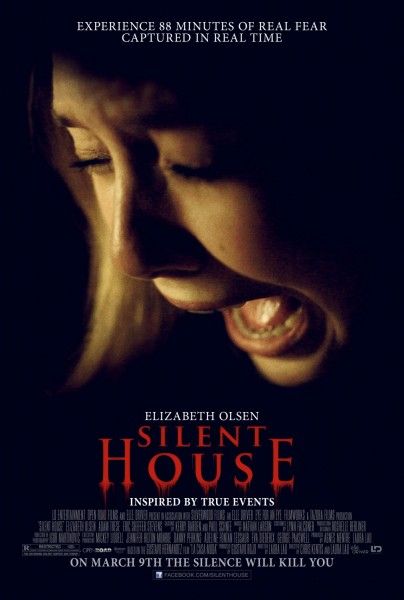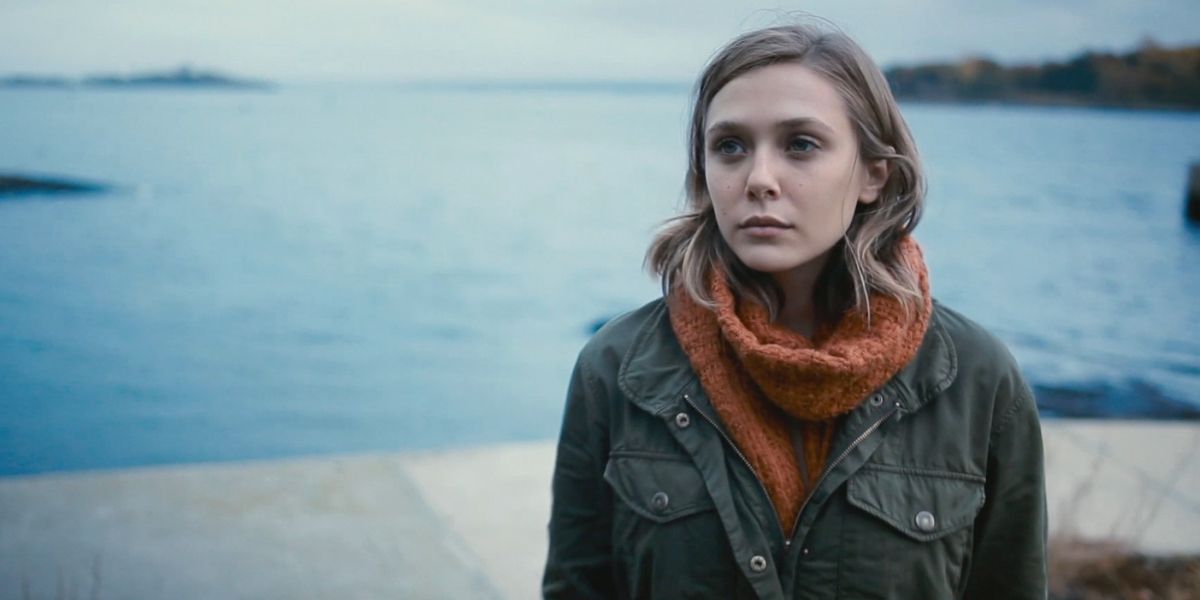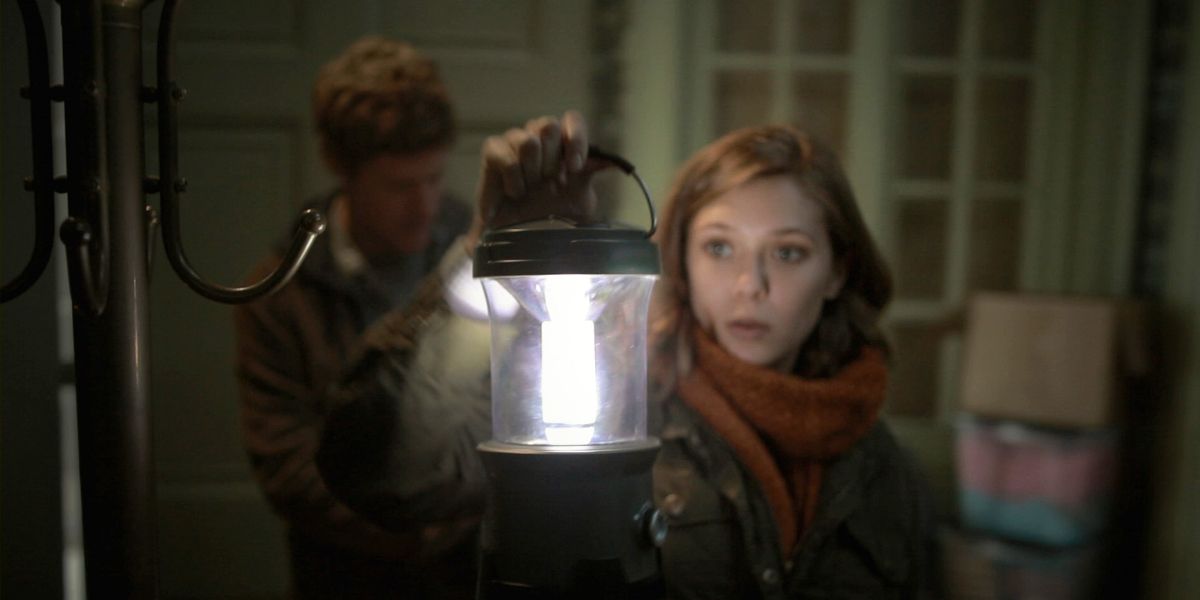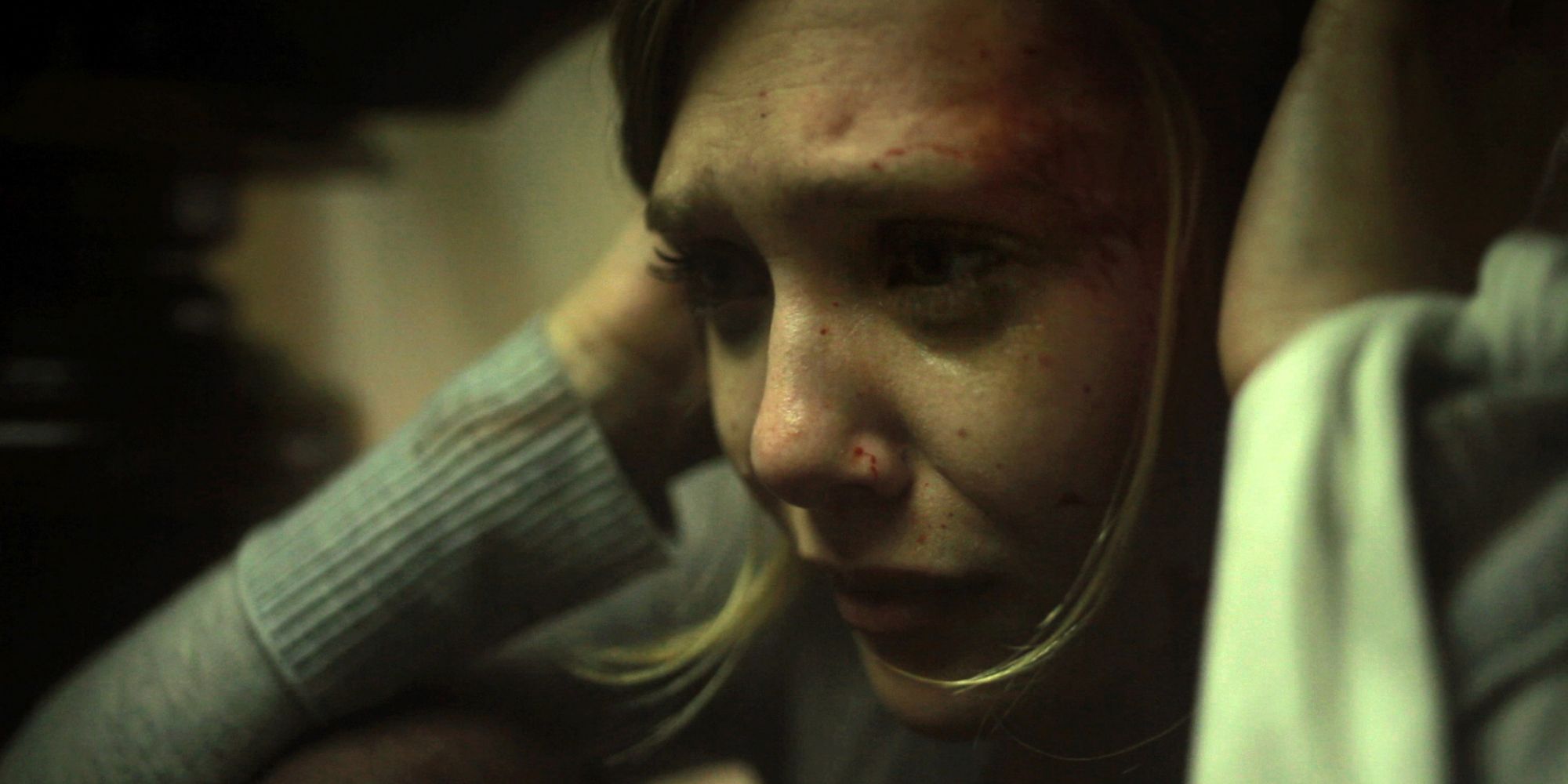Olsen delivered her version of the Final Girl in a real-time horror movie where nothing is as it seems.
Elizabeth Olsen had nightmares while filming the 2011 independent horror film Silent House. “We incorporate one [of my dreams] into the film,” she told IndieWire. “It was really, really disturbing.” For multiple reasons, it’s easy to see why. Silent House, based on the 2010 Uruguayan film La Casa Muda by director Gustavo Hernández, executes its stylistic premise too well to be dubbed “just a gimmick movie.” Filmmakers Chris Kentis and Laura Lau, the married couple behind 2003’s terrifying survival horror Open Water, filmed their low-budget sophomore movie in the vein of Alfred Hitchcock‘s Rope: a narrative stylized as one continuous shot. Spoiler: the experiment works. Kentis and Lau understand the language of film, the horror genre, and how both elements intersect, and use that acumen to their maximum — if wisely restrained when necessary — advantage. Silent House‘s real-time style compliments and enhances its story, especially in an era that was already reaching peak found footage oversaturation. Sarah, Olsen’s character and the film’s protagonist, experiences ceaseless psychological trauma in ways that won’t be fully revealed until the finale. Silent House encapsulates those harrowing sensations and echoes them back to the viewer through bedrock film techniques — and Olsen is the movie’s secret weapon.
What Is ‘Silent House’ About?
Laura Lau, Silent House‘s screenwriter, studied La Casa Muda — a feature that was also constructed to resemble a single take and was reportedly based on a true story from the 1940s — but took her interpretation in new directions. In her third movie role, Elizabeth Olsen plays Sarah, a young woman helping her father John (Adam Trese) fix up their Victorian summer house. Although Sarah’s comfortable with John and her uncle Peter (Eric Sheffer Stevens), she acts withdrawn and reserved when Sophia (Julia Taylor Ross), a woman claiming to be Sarah’s close childhood friend, arrives at their door. Sarah can’t remember Sophia, awkwardly blaming her bad memory. Once Sophia and Peter depart, Sarah and John set to work sorting miscellany and packing boxes — the tedious part of moving everyone hates. Mere minutes pass before Sarah hears a strange noise. She’s concerned for her dad’s well-being, especially when John doesn’t answer her calls. She ventures forth into the dilapidated house only to have her worst fears confirmed: strangers have invaded and severely wounded John, and they immediately menace a fleeing, hiding Sarah. Cue those 88 minutes of terror.
In a promotional interview with Bloody Disgusting, Lau (joined by Chris Kentis) revealed the extensive process behind transferring Silent House‘s script from paper to screen. “[The script] actually only came out to 55 pages,” she explained. “We wondered whether it would time out properly, because there are no cuts. There’s no way to fix anything in post, it has to pace perfectly when you shoot it.” To make sure their one-shot ambitions were feasible, the pair “acted out” the script on location as a duo, blocking out the choreography and timing as they went. Once they filled in the real-time beats Lau’s script couldn’t convey, Silent House averaged out to a perfect runtime.
What Makes ‘Silent House’ So Scary?
Film is collaborative. It requires multiple departments staffed by countless crew members and for those departments to form a cohesive unit: sound design and mixing, score, lighting, camera. Silent House uses every department, and trick, in the book to meticulously build a nerve-grating atmosphere. The pacing takes the time to introduce the characters without wasting its runtime: the camera lingers on Sarah’s fingers as they glide across flowers in a field, a quiet moment speaking to her pensive personality. In moments of peril, the camera exists almost unbearably close to Sarah, making us her partners in this dangerous experience. We’re forcibly confined with her underneath a table or claustrophobically shoved into tight corners. Shaky cam and jump scares accentuated with musical stingers are sparsely used. Instead, Nathan Larson‘s score acts as dramatic enhancement, sometimes blending indistinguishable from the ambient noise. And that ambient noise heightens tension more than anything else: every sound matters. Every creak and breath and rattle might mean death.
Kentis and Lau were aware of how popular the found footage style had become in the wake of The Blair Witch Project and Paranormal Activity. They wanted to evoke realism but took a different approach, aiming to strengthen their story, not distract from it. “My fear is that [found footage] is almost becoming like a sub-genre,” Kentis told Bloody Disgusting. “How can you put audiences there in the film and they can feel real like it’s happening to them? […] So this idea of the single camera never leaving your character’s side, being with them, never cutting away, living out the 86 minutes with them as they go through this, was a new way to experience it. It had to feel real but it didn’t have to look like grubby consumer video.” To most convincingly mimic a continuous shot, the pair filmed Silent House in long takes. The edit’s fluid; viewers can guess where the filmmakers concealed a cut, but doing so takes away from the fun. The actors perform their choreography with naturalism. Silent House‘s technique is obviously more refined than Rope‘s, and the movie’s cleverness might make Alfred Hitchcock proud.
Elizabeth Olsen Gives a Phenomenal Performance in ‘Silent House’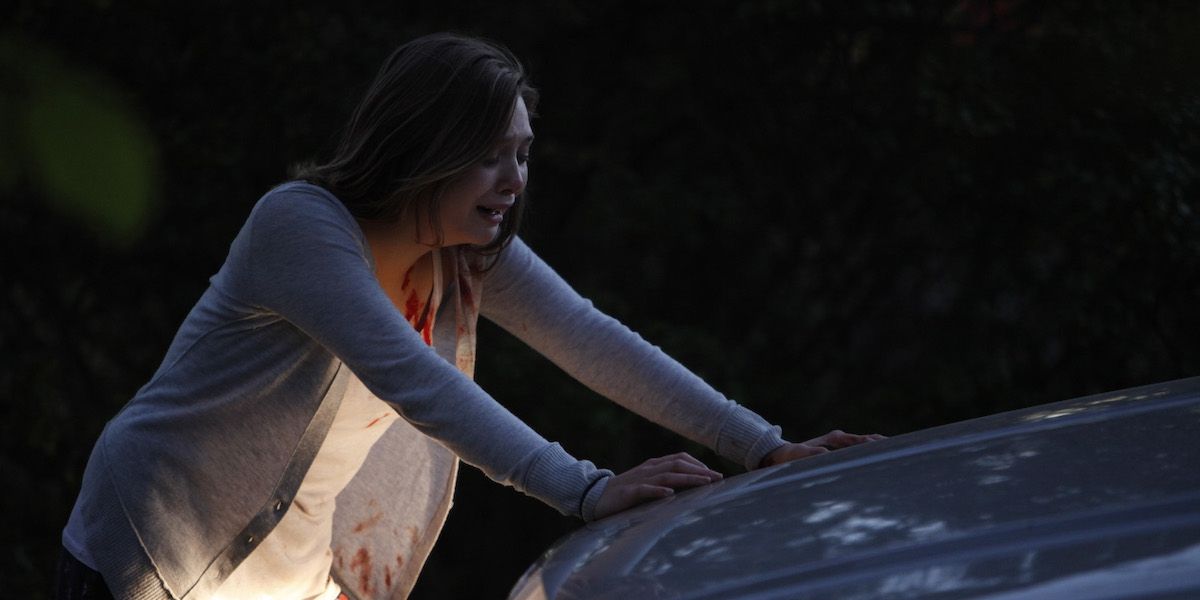
The technicality and emotional endurance Silence House required from its lead actress led Chris Kentis and Laura Lau to look for performers with theater training. In addition to studying acting at New York University, Elizabeth Olsen had trained at the Atlantic Theater Company and the Moscow Art Theatre School. According to Kentis, their casting directors “instantly just knew Elizabeth Olsen would be the right choice. And we met with her and auditioned her and she was fantastic, but it seemed too easy, you know? So we spent about a week looking at a lot of other people, just to be thorough, but no one ever came close. […] Such an emotionally draining role is always difficult, but to carry that for such a long period of time, and then one thing goes wrong and go back again, and do it again….she always had a great attitude for something that was a very, very difficult role.”
At this point, it’s no surprise to say Elizabeth Olsen delivers a remarkable performance. Silent House was her third film, and it’s a staggeringly impressive achievement for an actress of any age let alone one in her early 20s. In many ways, Silent House plays to Olsen’s strengths. Sarah’s withdrawn and internal, a woman possessing far more emotional depth than anyone would guess and bearing up under repressed trauma. She’s a survivor of repeated childhood assault severe enough to trigger a mental health condition. Long before that reveal hits like a runaway train in the movie’s last ten minutes, though, is a young woman petrified for her life. Underneath the stellar technical execution, SIlent House relies on Olsen to carry us through. Her detailed, stunningly fragile realism surpasses even the best Final Girl. Olsen’s empathetic instincts, raw facial cues, and bloodshot eyes make Silent House a haunting, waking nightmare. Olsen’s performance is especially outstanding given how long she had to maintain and repeat that level of emotional intensity. For her part, Olsen, a lifelong fan of horror movies, took the role because “I thought that’d be an interesting challenge to figure out. How does someone in real time get from the first minute to the 88th minute? […] You can’t use editing to help your performance.” In addition to her nightmares, “It was the first time I felt like I had to physically unwind from a role,” she told National Post.
Possibly the biggest difference between La Casa Muda and Silent House is the ending. Making the truth about Sarah’s situation a “twist” risks sliding into horror’s sordid history of exploiting mental health conditions for shock value. Silent House could’ve presented the scenario with a keener eye toward representation. Simultaneously, Sarah’s condition is scientifically accurate in its broad strokes and the script approaches it without exploitation. The “good for her” element is undeniable; the burst blood vessels in Sarah’s eyes burn with unapologetically vengeful fury, and that almost makes the film subversive. Critics at the time were divided over the “twist” and Silent House as a whole, giving the film a 42% Rotten Tomatoes score. Audiences currently rank it even lower at 30%, which continues the fascinating dichotomy of aggregated critical response versus audience response. Reevaluating the film after twelve years, Silent House doesn’t deserve such heavy criticism. This is an underrated indie well worth your time, and an example of classic horror filmmaking done on a small modern budget. And, of course, there’s the Elizabeth Olsen factor. Silent House would be nerve-shredding on its own, but adding in Olsen? That’s a roundhouse kick to the gut.
Silent House is available to stream on MAX.
